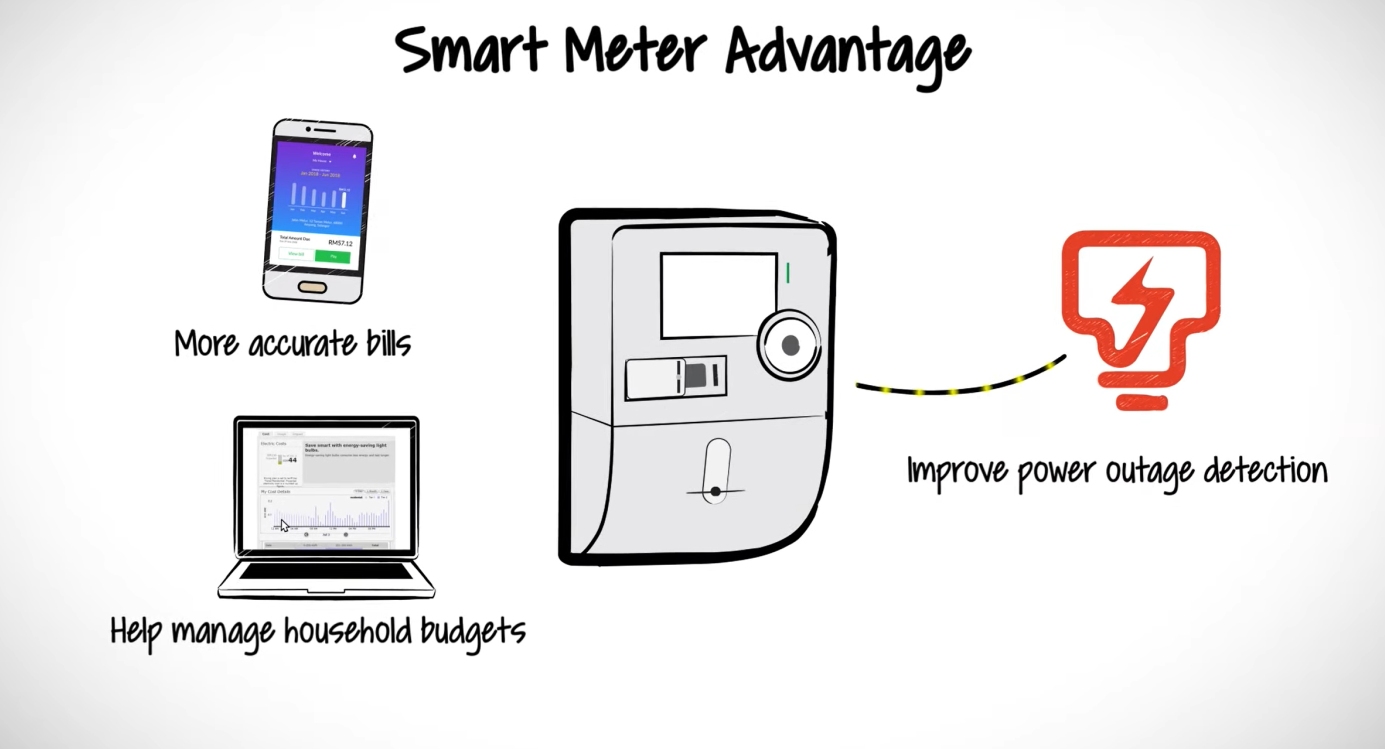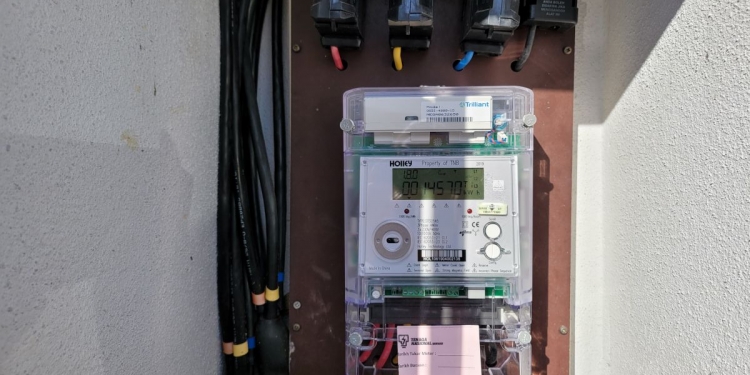This week, Tenaga Nasional Berhad (TNB) achieved a significant milestone: the company has installed one million Smart Meters in Melaka and the Klang Valley. This also means that TNB is well on their way to achieve their goal of installing 1.5 million Smart Meters by the end of 2021.
The thing I’ve always been curious about, however, is what the effects of a Smart Meter has to the end consumer. Now that more consumers have had some time with Smart Meters, has it really achieved what TNB intended the Smart Meter to?
In their press release announcing this particular milestone, TNB chief distribution network officer Datuk Ir. Baharin Din talked about how they wanted to see “more customers take control from using Smart Meters, and being empowered to make energy-efficient choices for themselves and the nation as a whole towards a more greener and more sustainable energy future”.
On TNB’s website, the company listed three reasons why you’d want a Smart Meter installed. First was that users could get more control, allowing you to “track and adjust your energy usage to save money and the environment”. Second, users are supposed to be able to view half-hourly energy usage updates via the myTNB portal. Third, they’re supposed to allow users to make payments “anytime, anywhere via the myTNB app”.

That all sounds incredible, but intention often differs from the result. Curious, I decided to ask the RKMD members in our Facebook group who have had Smart Meters installed, whether having one was actually better for them as an end-consumer.
Now, I didn’t get a lot of responses. I don’t know if that’s because most of our 3,000+ users haven’t had a Smart Meter installed, didn’t know they had Smart Meters, or if they just didn’t bother replying. So I wouldn’t jump to too big of a conclusion here. But, of those who did reply, it seems that the consensus was that they haven’t really felt a big impact having a Smart Meter versus not having one.
Bryan and Jude (two RKMD members) noted that the most significant thing they noticed after it was installed was that they now have an extra light in their porch/side gate. Amin, on the other hand noted that although he can now keep track of his power consumption better, it wasn’t something he was particularly concerned about unless there was a huge discrepancy with his monthly bill.
And that, I think is a sentiment that resonates with me. I don’t know about you, but I only pay attention to my myTNB app when it’s time to pay the bill. Maybe having a Smart Meter would change that (I don’t have one right now) but if I’m being honest I highly doubt so. On top of that, I can already pay my bills at any time with the myTNB App, so I’m not entirely sure how a Smart Meter would change that.
So, if we’re talking about the three reasons TNB listed on their website, I think that there’s already a little bit of a gap between intention and result. At this point, I can only really speculate the reason behind this current state of Smart Meter underutilisation from the user’s standpoint. It could be that there isn’t enough education or proper messaging delivered to the user on how to make full use of their Smart Meter. These messages could range from good energy usage habits with the Smart Meter, or just an easy-to-digest campaign to show people how they can use the new features to help them save money or save energy.

After all, saving energy, and by extension the environment, is a complex topic that is still very new in the public sphere. We’ve gone around all these years using all the energy we could get our hands on with little regard on how it would affect the planet and our lives in the long run. Getting those same people to essentially abandon everything they know and start from scratch is going to be a big effort. But it’s one that I believe can be done if the right measures are being put into place by the right people.
Of course, it could also be that these Smart Meters don’t actually have a whole bunch of benefits to the consumers—at least, not to the extent that it would be able to empower users to make energy efficient. Alex made a good point on my RKMD post that the biggest advantage to having a Smart Meter is that there would no longer be a need for manual meter readings as both TNB and the consumers will be able to get accurate readings remotely in “real-time”.
Not only would this eliminate the “anggaran” estimated meter reading, but it would also save time and manpower, as well as reduce the likelihood of human errors when taking a reading. He adds that there is also a chance that it will reduce carbon emissions since there’s no need for TNB to send their people out in vehicles to inspect meters the old fashioned way.
This does bring up a good point regarding the amount of real-time data that TNB has access to with these Smart Meters. If helping consumers make energy-efficient decisions is one of their big goals, perhaps real-time notifications about usage habits could be pushed via the myTNB app with the help of the Smart Meter readings.
One example could be a push notification informing users of their month-on-month usage habits. For example, the app could alert users if they’re using more electricity on the first week of March compared to the first week of February, as an early warning system to get users to pay attention to what’s draining electricity. Conversely, letting people know that they’re using less electricity could also be a great way to gamify this otherwise troublesome task—y’know, the way fitness trackers gamify fitness.
Alternatively, TNB could also offer projected estimations of how much this month’s electricity bill could cost based on current usage habits, so users can better plan their budgets and adjust accordingly. Perhaps the company could even employ a machine learning algorithm to take care of all of these and even introduce more useful information that consumers can use to develop good energy-saving habits.

There’s clearly a lot that could be done here with the data that’s being collected by the Smart Meters and the accessibility of the myTNB app. An app, by the way, that TNB says has over 4.7 million users now, an increase of 236% from the year before. Right now, it definitely seems like there is a lot of untapped potential here, and if you don’t show people how this potential can be useful, this will likely never change.
At the end of the day, I just hope that the whole moving “towards a greener and more sustainable energy future” isn’t just pretty PR talk that will look good on a news article. As a side note, if we really want to make an impact, it is also important to look at how our energy is being generated. The latest reports (1, 2, 3) I could find still lists fossil fuels as the main source of electricity generation in our country. That means that even if we were to swap to electric vehicles or personal mobility devices, we will still be burning fossil fuels.
What do you guys think? Do you have a Smart Meter? Has it changed your usage habits? Did I miss anything important? Leave all your thoughts in the comments below.








